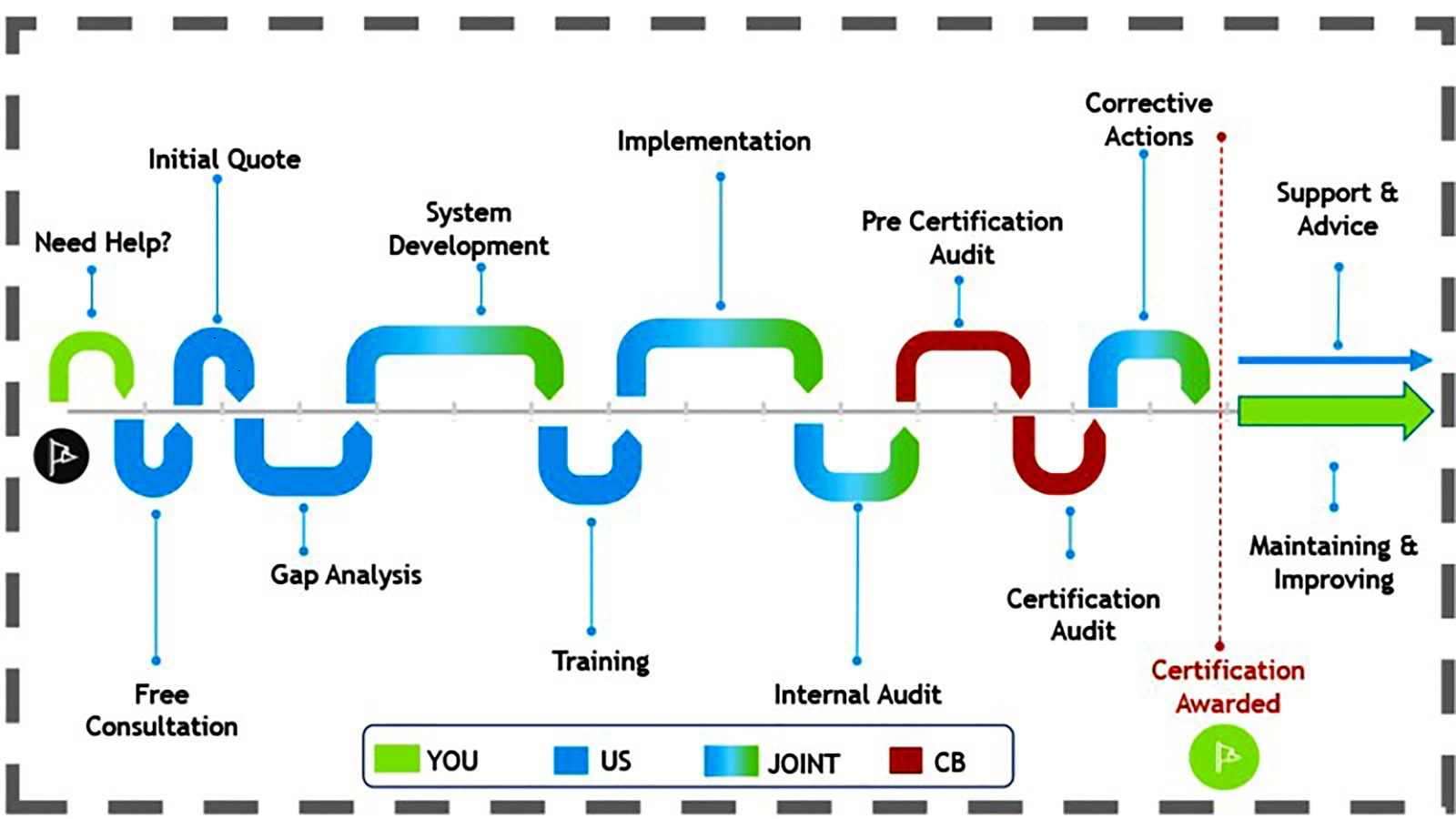
How to Certify Your Organization with Relevant ISO Standards: A Step-by-Step Guide
In todays competitive landscape, achieving ISO certification can boost your organizations efficiency, ensure compliance, and build trust with customers. Whether your goal is ISO 9001 for Quality Management, ISO 45001 for Occupational Health and Safety, or ISO 27001 for Information Security, following the correct certification process helps you align with global standards and thrive.
About ISO Certification
ISO certification is a globally recognized standard that signifies a commitment to quality, safety, security, or environmental management. Certification validates that your processes align with best practices and meet customer or regulatory requirements.
Benefits of ISO Certification
- Operational Efficiency: Streamlined processes, fewer errors, and enhanced productivity.
- Risk Mitigation: Better risk management and improved regulatory compliance.
- Customer Confidence: Demonstrates commitment to quality and safety, building trust.
- Competitive Edge: ISO-certified companies are more attractive to clients, partners, and investors.
Who Can Apply for ISO Certification?
Any organization, regardless of industry or size, can pursue ISO certification. Standards like ISO 9001, ISO 27001, ISO 45001, and others are applicable across sectors, helping businesses enhance processes and ensure customer satisfaction.
How Can You Apply for ISO Certification?
Step 1: Identify the Right ISO Standard
Determine which ISO standard fits your business needs. Common standards include:
- ISO 9001: For improving quality management systems (QMS).
- ISO 14001: For environmental management systems (EMS).
- ISO 45001: Focuses on occupational health and safety (OH&S).
- ISO 27001: Focuses on information security management systems (ISMS).
Step 2: Conduct a Gap Analysis
Identify areas where your processes do not meet the ISO standards requirements. Focus on documentation, compliance with industry standards, and management system weaknesses.
Step 3: Update and Document Processes
Make necessary changes to your processes to align with ISO requirements. Ensure all updates are thoroughly documented.
Step 4: Implement the Management System
Roll out the ISO-specific management system, train employees, assign roles for managing ISO compliance, and use metrics to track progress.
Step 5: Conduct Internal Audits
Regularly audit your processes to identify any gaps or non-conformities. Address issues promptly to ensure compliance.
Step 6: Choose a Certification Body
Select an accredited certification body to carry out the official audit. Ensure they have experience in your industry and are recognized by organizations like UKAS or ANAB.
Step 7: Undergo the Certification Audit
The audit consists of two stages:
- Stage 1: Documentation audit to check your management system and processes.
- Stage 2: On-site audit to verify compliance and review implementation.
Step 8: Address Non-Conformities
If any non-conformities are found, correct them and undergo a follow-up audit to ensure compliance.
Step 9: Receive Your Certification
Once your organization has passed both audit stages, you will receive your certification, which is valid for three years. Regular surveillance audits will be required to maintain certification.
Step 10: Continuous Improvement
Continue to conduct internal audits and participate in annual surveillance audits. Review and improve processes to maintain ISO certification and operational excellence.
Partner with Everest Consultrain to navigate the ISO certification process successfully. Our expert-led training covers all major ISO standards, ensuring your team is fully prepared for certification and ongoing compliance.
